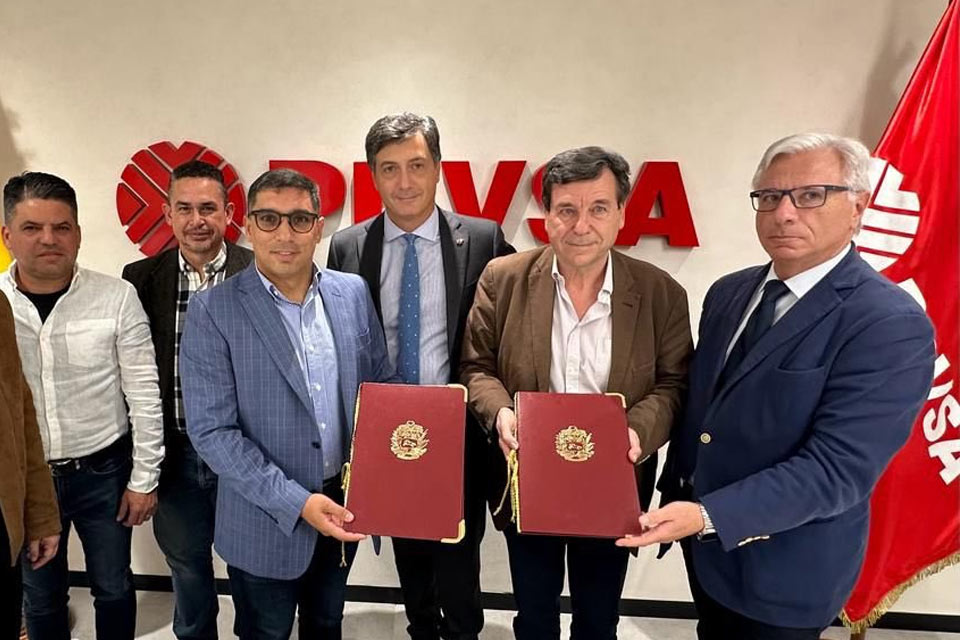Both Repsol and ENI have a license —issued by the Office of Foreign Assets Control (OFAC) of the United States Department of the Treasury— that gives them authorization to export products to Europe as a mechanism to collect the debt that PDVSA maintains with both companies, as long as they do not generate dividends that benefit the state company
The Minister of Petroleum and president of Petróleos de Venezuela (PDVSA), Pedro Rafael Tellechea, reported that he signed an agreement with the transnationals ENI and Repsol, from Italy and Spain, respectively, to allow them to export natural gas liquids (LNG).
The information was disseminated by Tellechea himself on his social networks and specified that it is a license that involves the products generated in Cardón IV, a company jointly run by ENI and Repsol.
According to data seen by Bloombergthe Cardón IV project has increased production to 500 million cubic feet of natural gas per day in 2023, a figure that is 31% more than the amount produced in 2019.
The Cardón IV natural gas company, operated jointly by both international companies, produces condensates that are sent to PDVSA refineries. Now, with the implementation of this agreement, they will be able to export to Europe the production of a condensate recovery plant.
The agreement is signed in the midst of a restructuring of Pdvsa led by Nicolás Maduro and Pedro Tellechea, after a corruption scandal involving the state oil company was uncovered and related to the non-payment of billion-dollar debts by intermediaries used to You triangulate oil exports to evade US sanctions.
Both Repsol and ENI have a license issued by the Office of Foreign Assets Control (OFAC) of the United States Department of the Treasury. The document authorizes them to export products to Europe as a mechanism to collect the debt that PDVSA maintains with both companies, as long as they do not generate dividends that benefit the state company.
On March 2, Repsol raised positive expectations regarding the Venezuelan market after years of paralysis due to United States sanctions.
“The political and economic situation has been maintained, but the prospects for the operation have improved as a result of the incipient relaxation of the coercive measures of the United States Government against Venezuela,” the company stated in a management balance presented in February.
The executive director of the company, Josu Jon Imaz, explained that since May of last year they began to receive shipments as a payment mechanism for the gas bills produced by Cardón IV.
*Read also: Chevron CEO warns that political risk in Venezuela limits profits
Post Views: 857








